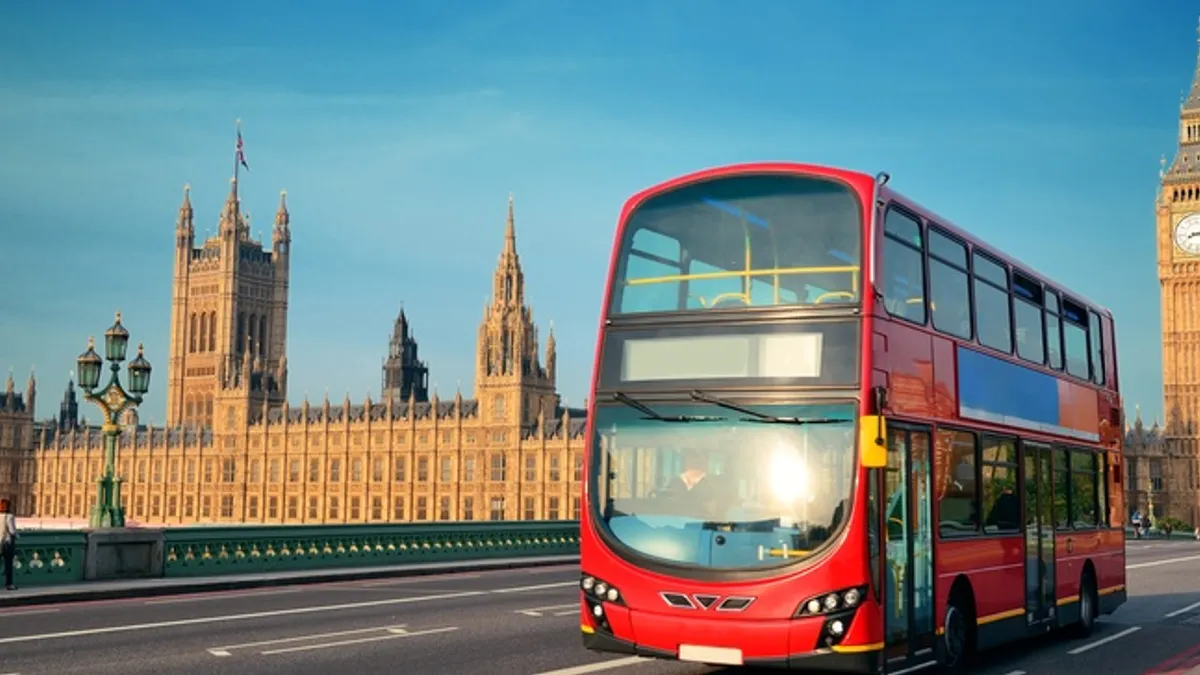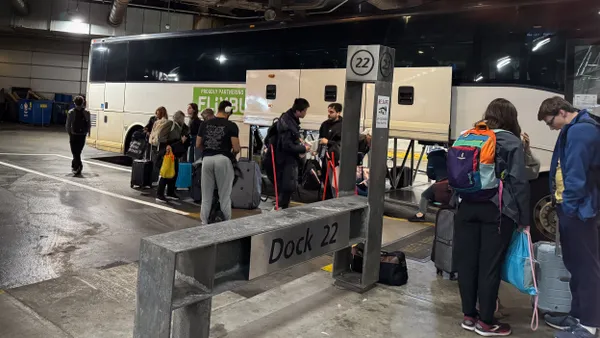Dive Brief:
- The United Kingdom’s Centre for Connected and Autonomous Vehicles announced £25 million ($33 million) in funding for up to four pilot projects for autonomous and connected vehicles.
- The funding is for UK firms to develop or test autonomous vehicles (AVs) in a real-world or semi-controlled environment with a six-month public trial. The government says it wants “ambitious proposals where the commercial benefit is strong and there is a clear route to a commercial option after the project.”
- The funding announcement came the same day as the government offers £8 million ($10.5 million) in smart cities grants, including one to the connected car developer Lightfoot, reports Compelo.
Dive Insight:
In his 2017 budget, Chancellor Philip Hammond promised that driverless cars would be on the roads by 2021 and that they would be allowed to test without restrictive regulations. Hammond — the UK's top economic official — has also pledged a billion pounds (more than $1.3 billion) to fund private projects. Since then, the British government has initiated a three-year review of its driving laws to adapt to AVs, including whether they require new criminal law, in what circumstances a human driver will need to be present, and how they should interact with public transportation.
The review is done with an eye towards the UK becoming a leader in AV application, part of the government’s plan to rely on the tech industry after the country exits the European Union, the Guardian reports.
The government’s driven interest comes as the United States Congress has struggled to move legislation that would allow for more testing and innovation in the sector. The Senate’s American Vision for Safer Transportation Through Advancement of Revolutionary Technologies Act (AV START) has been stalled amid safety and regulatory concerns from some legislators, and backers are still plotting ways to pass it before the November midterm elections.
In the meantime, there has been some guidance from the U.S. Department of Transportation (DOT), but much of the push for AVs has come from states, cities and private companies like car manufacturers and ride-hailing apps, creating a potential patchwork of regulations.











